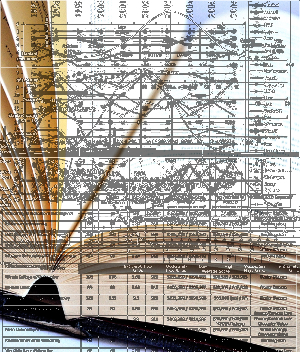Study shows competitive link in schooling
 An Australian study has found the importance of investing in reading, science and mathematics education for international competitiveness.
An Australian study has found the importance of investing in reading, science and mathematics education for international competitiveness.
The Macquarie University project looked at the relationship between educational achievement and a nation’s competitiveness, and found that key elements of secondary education have a profound effect.
The study also suggests that education alone is not sufficient to create a competitive country, but rather that the effect of education on competitiveness is enhanced by culture and industrial development.
The study analysed Programme for International Student Assessment (PISA) data from 63 countries to ascertain education’s role in explaining the competitiveness of a country.
It found strong correlations for reading and science (each 53 per cent shared variance) and mathematics (50 per cent).
But it is not universally true.
Regional differences were found, with East Asia performing strongly both academically and in competitiveness, ahead of Europe, the rest of Asia, and South and Central America.
Anglo-Saxon countries rank second academically behind East Asia, but in terms of competitiveness, the Anglo-Saxon cluster ranks first.
“The reasons for these differences in competitiveness, even in cases with similar education ability, were revealed by diachronic analysis that showed that cultural dimensions such as competitive industrial performance, uncertainty avoidance, long-term orientation and indulgence restraint, combine with education to contribute to improvements in competitiveness,” said research leader Dr Chris Baumann.
“These cultural values can be passed on by parents, the education system (schools, universities) and the media. To what extent cultural values passed on from these sources impact an individual’s competiveness and performance is yet to be established in the literature.”
The results may also reflect a shift in society and economic activities towards services industries.
Approximately three quarters of economic output in Western countries is generated in services such as education, health, finance/banking, tourism and retailing - industries where reflection, creative and independent thinking and skills such as communication are key.
“This study makes a contribution in three distinct ways. Firstly how well educational achievement, specifically in reading, science, and mathematics, explains a country’s competitiveness. Secondly the study investigates regional differences in education and competitiveness. Thirdly and finally, the study offers a diachronic perspective to better understand how education drives competitiveness over time,” Dr Baumann said.
“Future research should also aspire to explain the regional variation we have found in our study, and as such provide valuable input for education and school policy.”








 Print
Print